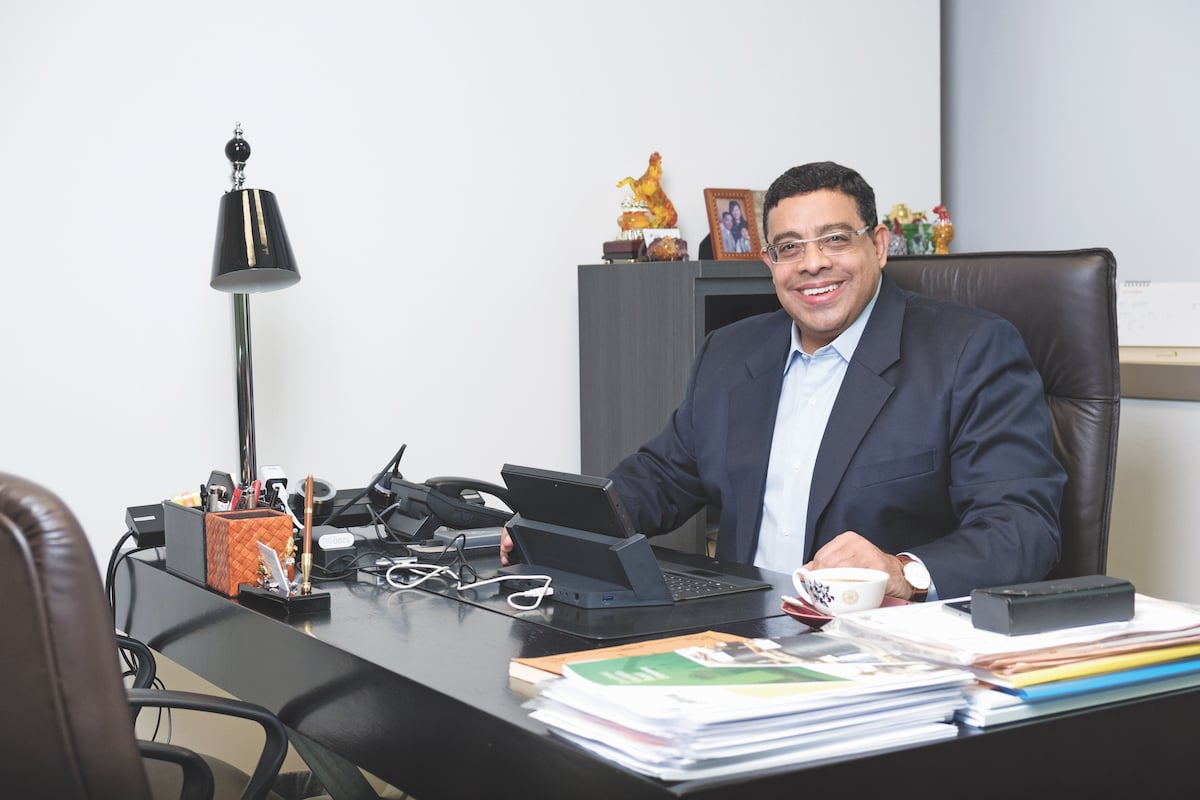Leaps and bounds: Tarek Bary
A major project in Vietnam put telecommunication systems engineering start-up Leap Networks on the map, and it’s been forging ahead ever since.
Tarek Bary is a man who’s lucky to be in love with his job. "For me, it’s not just a job; it’s my passion," he says. Tarek is the President and Chief Executive of Leap Networks, a telecommunication systems engineering and systems integration company specialising in the oil and gas industries. It’s a focus that has him gushing with enthusiasm: "Our project work is very intriguing and very challenging. Every project has its own set of challenges, its own requirements, and every project we meet new people," he says.
As a global business with its headquarters in Singapore and offices in Saudi Arabia, West Africa and Indonesia, and customers everywhere from Europe to Japan, there’s the rich interest of dealing with people from lots of different cultures too. "It’s very interesting to see how different cultures think about specific points," he says. On the technical front, there’s the challenge of staying ahead of rapidly changing technology. "It keeps us learning every day," he says. "It’s never a boring job." It’s a fortunate state of affairs and one that hasn’t exactly happened by accident.
Leaping into telecommunications
When Tarek started Leap Networks in 2012, he wanted to focus on the things he loved most about his work. "I’d wanted to have my own company for a long time and do the things I really liked doing the most: systems engineering and projects. I also wanted to develop the company the way I wanted to," he says. Educated in systems engineering at the Alexandria University in Egypt, Tarek moved to Singapore in 1991. In 1997, he started his first company and he remained with the company until it was taken over in 2003, but by mid 2011 he was keen to answer the call to start his own company again. He poured his personal resources into the start-up and drew on his network of contacts to build the business.
"I started reconnecting with the clients that I’d got to know over the past 15 years during my previous roles, and they welcomed the new set-up."

Requests for inquiries and proposals turned into a series of small projects. "People started to have confidence in the new company, and the business started to expand slowly and steadily."
Technically & commercially competitive
But as a new start-up, it faced the ongoing challenge of being asked to submit pre-qualifications when it was bidding for major projects. "Our major turning point in the company came when we managed to secure a large project in Vietnam through one of our major customers in Japan.
"It had been one of my customers for the past 15 years, so when it was awarded this contract it contacted us and asked us to bid for the telecommunications scope. We submitted our bid and we managed to be technically and commercially competitive and were awarded the contract in March 2014."
Despite being a large and technically complex project, Leap Networks delivered it on time in March 2015. The resulting publicity sparked a flow-on effect and helped to build the confidence of other customers, suppliers, vendors and business partners. Subsequently, it was awarded another large refinery project with a leading US engineering firm specialising in oil and gas infrastructure projects. The project for the Kuwait National Petroleum Company became another milestone in the company’s development.
To IPO or not to IPO?
Not that it’s resting on its laurels. The business has recently restructured its operations to be ready for further growth. As Tarek sees it, the company has 2 options in the next 5 years. "If we continue to grow at the same rate, we’re hoping that by 2018 or 2019 we’ll be in a position to go for an IPO."
The other option is to remain a private company and expand by capitalising on its telecommunications expertise to move into new markets. "We started with the oil and gas industry, and now we have some projects in the mining industry. So moving forward we’ll add other market segments that complement the oil and gas market and the mining industry."
"Our major turning point in the company came when we managed to secure a large project in Vietnam." – Tarek Bary
He’s also seeing an opportunity in the demand for security tools to secure and control high-value assets, such as oil and gas pipelines and refineries. "We’re going to have a separate division for security projects where we have a specialised team of engineers to develop high-end security solutions for our customers."
An innovative team
With technology changing rapidly, Tarek believes building a team of specialists among its engineers, technical support staff, and project managers is essential to the company’s ability to innovate.
"This is how we can be innovative in applying the new technologies in our market and create innovative solutions that can serve our clients more efficiently and more effectively," he says. It also helps the company provide cost-effective solutions for customers. "The cost has become a very important factor for our customers." It takes a 2-pronged approach to finding the specialists it needs. It recruits new engineering graduates and trains them in a specific area of expertise, as well as recruiting people with the necessary specialist skills.
"Sometimes it’s very difficult to get people with completely the right experience from day one," he admits, adding it takes "constant and continuous" training to keep up to date with changes in technology.It’s an approach that’s paying off. "Whatever success the company has achieved so far I really attribute to the hard work and commitment of the staff and the company’s key individuals," he says.